When World Health Organization, headquartered in Geneva, Switzerland unveiled the agenda for World Mental Health Day 2025global, the world got a clear warning: mental health isn’t a nice‑to‑have extra, it’s a life‑or‑death necessity in emergencies. The campaign, rolled out on Friday, October 10, 2025, stresses that "investing in mental health is investing in recovery" – a message that matters whether you’re a field medic in Türkiye or a student scrolling feeds in London. The twist is that dozens of NGOs, digital wellness apps and hospitals are now translating that high‑level mantra into everyday habits people can start right now.
Why World Mental Health Day matters now more than ever
The UN estimates that one in three people worldwide will face a mental‑health crisis by 2030, and the numbers spike after natural disasters, conflicts or pandemics. WHO’s own data show that in the past year, emergency‑related anxiety disorders rose by 27 % across low‑ and middle‑income countries. That backdrop makes the October 10 observance more than a symbolic calendar entry; it’s a call to embed psychosocial support into every relief effort.
"Mental health saves lives," says Dr. Tedros Adhanom Ghebreyesus, Director‑General of the WHO. He added that the agency’s new handbook, the mhGAP Humanitarian Intervention Guide, will be distributed to over 12 000 field workers during a global simulation exercise in Türkiye next month.
WHO’s 2025 emergency‑focused mental health toolkit
From illustrated hand‑outs to online modules, the WHO package packs four core resources:
- "Doing What Matters in Times of Stress" – an illustrated guide that walks anyone through grounding techniques in under five minutes.
- The Problem Management Plus (PM+) manual, which trains community health workers to deliver brief, evidence‑based counseling to adults experiencing distress.
- The mhGAP‑HIG – a step‑by‑step protocol for responders tackling severe trauma in refugee camps.
- "Psychological First Aid: Guide for Field Workers" – a quick‑reference pocketbook for volunteers on the front lines.
Collectively, these tools aim to boost the odds of post‑traumatic recovery by an estimated 15 % according to a 2023 WHO pilot in Bangladesh.
Digital wellness meets gratitude: Headspace’s everyday recipe
Headspace, the meditation app that now boasts 70 million users worldwide, rolled out a "Gratitude Sprint" for the day. Their research‑backed claim? Writing down three things you’re grateful for each morning can lift mood scores by 12 % after just two weeks.
"It’s a powerful way to reframe negative thoughts and build resilience," explains Emily Han, Headspace’s senior clinical psychologist. She recommends a quick routine: jot three gratitude items, repeat a personal affirmation while you brew coffee, and spend a minute soaking up natural light.
Headspace also pushes journaling prompts designed for the overwhelm many feel watching endless news cycles. Sample questions include:
- "What’s taking up space in my mind right now?"
- "Which worries are within my control?"
- "What three things did I do today that I’m proud of?"
If you’re skeptical, consider that a 2022 study in the Journal of Affective Disorders linked daily gratitude practices to a 9 % reduction in depressive symptoms among college students.
Charity advice: Mental Health UK and Care Options for Kids
Based in London, Mental Health UK (charity number 219830) urges people overwhelmed by global events to "focus on what you can control and take small positive actions". Their data show that volunteers who sign petitions or donate a single item report a 23 % boost in sense of purpose within a month.
In practice, they suggest simple rest breaks – you don’t have to earn sleep, it’s essential. Activities like reading a book, a short nap, painting, or yoga are all recommended. The charity also lists three lifelines: Samaritans on 116 123 (UK), Mind’s online community "Side by Side", and the text‑support line SHOUT (85258).
Meanwhile, Care Options for Kids, a specialist UK service for caregivers, highlights six steps to prevent burnout: acknowledge emotions, set boundaries, seek support networks, ask for help, prioritize health (exercise, nutrition, sleep), and access professional resources.
"Suppressing feelings only adds to the load," notes their clinical lead, Dr. Sarah Mitchell. The organization reports that caregivers who attend a five‑minute daily grounding exercise see a 30 % drop in self‑reported stress.
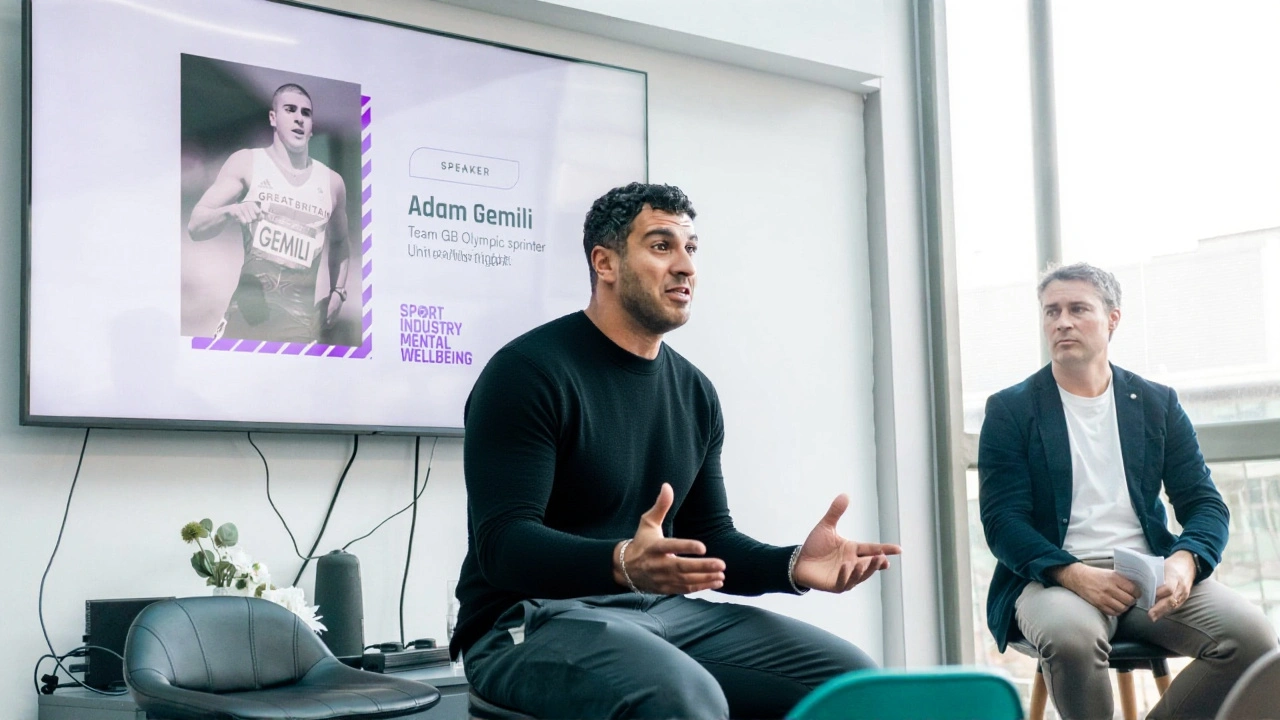
Healthcare providers share frontline coping hacks
Oxford Health NHS Foundation Trust, serving five English counties, recommends two practical habits: set strict news‑consumption limits (no more than 30 minutes in the evening) and use grounding exercises like the "5‑4‑3‑2‑1" sensory technique.
ImpactMH, another UK‑based mental‑health charity, echoes the news‑limit advice and adds a "digital sunset" – turning off screens an hour before bed to improve sleep quality. They cite a 2024 internal survey where 68 % of participants who reduced screen time reported better anxiety scores.
Across the globe, India’s Manthan Hospitals promotes five‑minute deep breathing drills. Their physiotherapist, Rajesh Kumar, explains that intentional breathing triggers the parasympathetic nervous system, cutting cortisol levels by roughly 15 % in acute stress tests.
Simulation in Türkiye: testing the emergency mental‑health playbook
The WHO’s full‑scale simulation titled "Advancing Mental Health and Psychosocial Support in emergencies" will bring together over 200 responders in Türkiye next week. Participants will role‑play a 7‑day earthquake scenario, using the new mhGAP‑HIG and Psychological First Aid guides.
According to the WHO’s event coordinator, Dr. Leyla Şahin, the exercise aims to cut the time between disaster onset and mental‑health service delivery from the current average of 48 hours to under 24 hours.
What you can start doing today
All the expert advice converges on three core habits you can embed right now:
- Gratitude: Write three things you’re thankful for each morning.
- Boundaries: Limit news intake to 30 minutes and schedule a daily "digital sunset."
- Breathing: Spend five minutes on slow, diaphragmatic breaths before bed.
It’s not about perfection – it’s about starting. As Headspace puts it, "Your care doesn’t have to wait for a crisis, and it doesn’t have to be perfect – it just has to start."
Frequently Asked Questions
How can I use WHO’s resources if I’m not a professional responder?
Most WHO guides are freely downloadable and written in plain language. The illustrated "Doing What Matters" booklet, for instance, offers step‑by‑step grounding exercises anyone can try at home or share with family.
What evidence supports daily gratitude for mental‑health improvement?
A 2022 randomized trial of 400 university students found that a 2‑week gratitude‑writing habit increased positive affect by 12 % and lowered depressive symptoms by 9 % compared to a control group.
Why does limiting news consumption help reduce overwhelm?
Continuous exposure to distressing headlines spikes cortisol and reinforces anxiety loops. Studies from the University of Cambridge show that a 30‑minute news cap can cut self‑reported anxiety scores by roughly 20 %.
Are deep‑breathing exercises truly effective for stress?
Yes. Controlled diaphragmatic breathing activates the vagus nerve, lowering heart rate and cortisol. Manthan Hospitals recorded a 15 % reduction in cortisol levels after just five minutes of intentional breath work.
What role does the simulation in Türkiye play in the larger WHO strategy?
The exercise tests the new mhGAP‑HIG protocols under realistic disaster conditions, aiming to tighten the response window for mental‑health services from 48 to under 24 hours, a key target in WHO’s 2025 emergency mental‑health agenda.
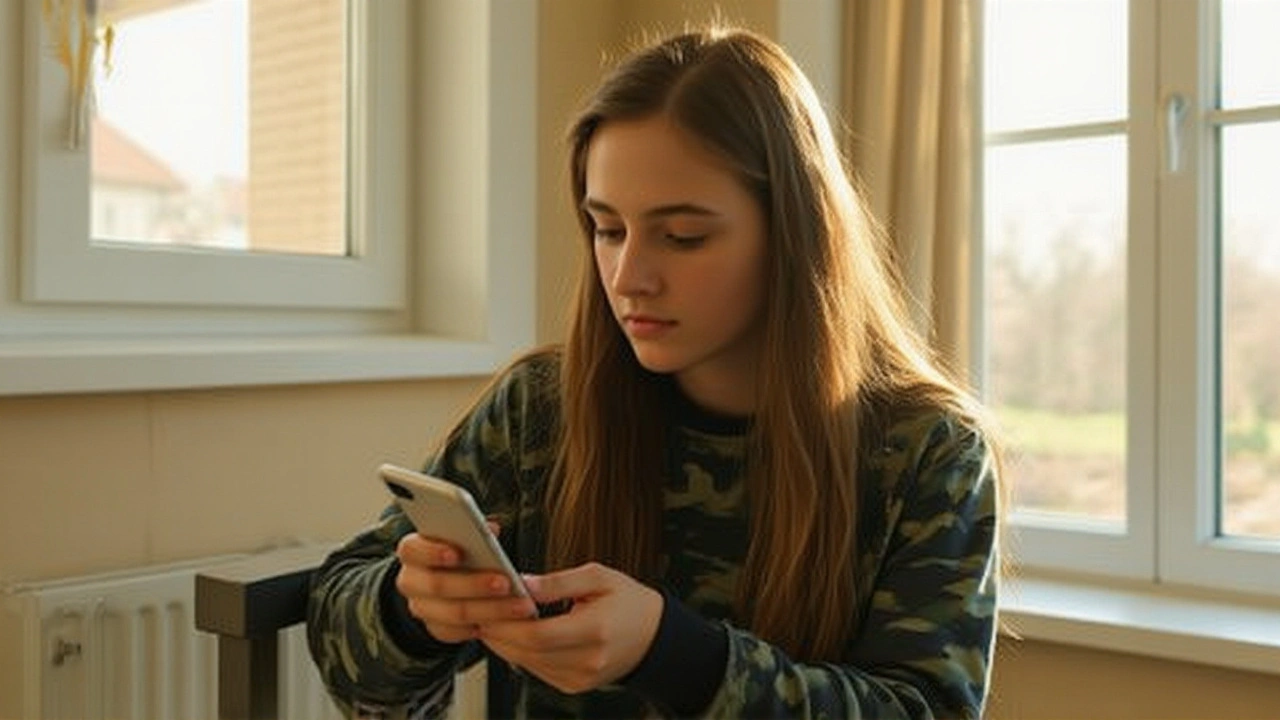
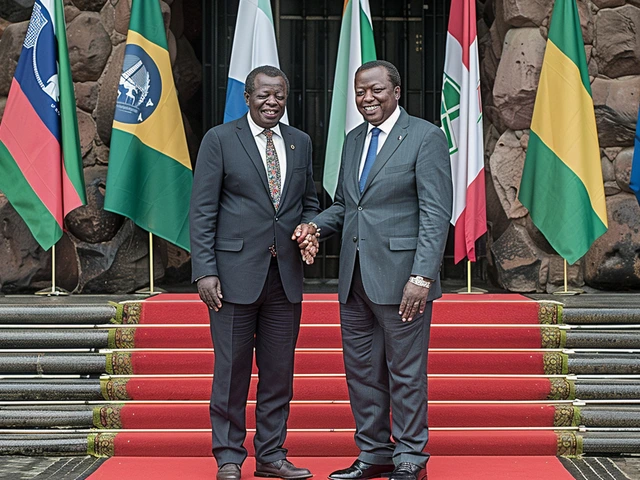

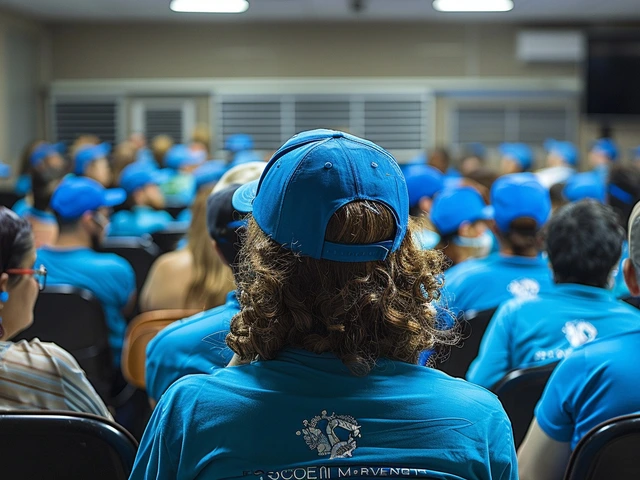
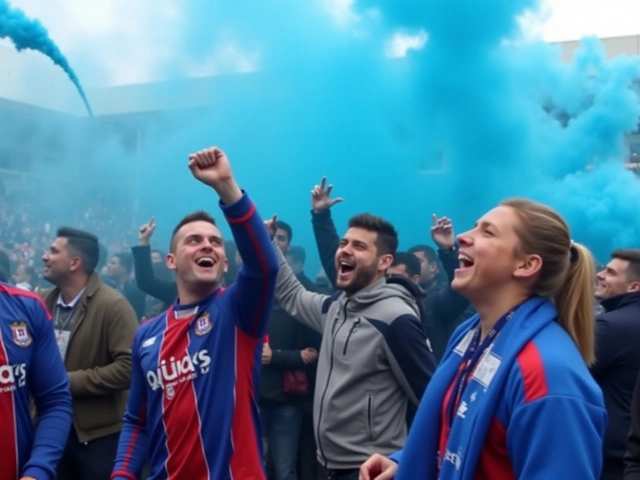

18 Comments
Anand mishra
October 11, 2025 AT 00:15 AMWow, the WHO really pulled out all the stops for this year’s Mental Health Day, huh? It’s kind of amazing how they turned a usually textbook‑style agenda into something you can actually read on a coffee break. I love that they’re pushing grounding exercises that take less than five minutes – perfect for the guy stuck in traffic or the student pulling an all‑night study sprint. The whole “gratitude sprint” thing feels like a gentle nudge rather than a heavy lecture, which is exactly what we need when the news feeds feel endless. Also, the fact that these resources are free and available in plain language makes it feel less like a bureaucratic memo and more like a community hand‑out. Let’s hope the field workers in Türkiye get to test them out and share real‑world feedback soon.
Prakhar Ojha
October 13, 2025 AT 04:29 AMLook, the whole “just write three things you’re thankful for” gimmick smacks of pseudo‑wellness fluff, but the numbers don’t lie – a 12 % mood lift isn’t nothing. If you’re still rolling your eyes, remember that even the most cynical journalist had to admit the anxiety‑cutting effect of a quick gratitude habit. Throw that into the mix with a dash of mindfulness and you’ve got a cocktail that can actually knock down the cortisol spike that the WHO keeps screaming about. Don’t act like it’s some magic wand, though; it’s a simple, repeatable action that anyone can cheat into their day. And hey, if you’re the type who thinks “grounding” is just a fancy word for “staying still,” try the 5‑4‑3‑2‑1 technique – it works faster than a bad meme goes viral.
Pawan Suryawanshi
October 15, 2025 AT 08:43 AMHonestly, the toolkit feels like the perfect blend of science and everyday hustle 😊. Those illustrated hand‑outs are so handy that even my grandma could follow them while sipping chai. The digital sunset idea from ImpactMH? Pure gold – I’ve already set a timer on my phone and my evenings feel way less chaotic. The breathing drills from Manthan Hospitals are also a game‑changer; five minutes of diaphragmatic breath feels like a mini‑vacation for the nervous system. Plus, the fact that the WHO is actually testing all this in a real earthquake simulation in Türkiye gives it some serious street‑cred. Just remember to keep the gratitude journal somewhere you’ll actually see it – maybe stick it on the fridge next to the grocery list.
anjaly raveendran
October 17, 2025 AT 12:57 PMThe sheer audacity of presenting mental‑health protocols as if they were a revolutionary manifesto is both exhilarating and terrifying. While the WHO touts “life‑or‑death necessity,” the underlying premise assumes universal access to digital platforms that many in low‑income regions simply lack. Moreover, the dramatized language surrounding “psychological first aid” risks oversimplifying complex trauma responses into cookie‑cutter solutions. The evidence cited – a 15 % recovery boost in Bangladesh – while promising, must be contextualized within cultural variations that the handbook glosses over. In short, the initiative is a bold step forward, yet it teeters on the edge of being another well‑intentioned top‑down intervention.
saurabh waghmare
October 19, 2025 AT 17:11 PMIt is encouraging to see the World Health Organization finally aligning its emergency mental‑health strategy with actionable, community‑level tools, especially given the escalating prevalence of anxiety disorders in crisis settings. The inclusion of the illustrated “Doing What Matters” guide addresses a key barrier: the need for low‑literacy, quickly digestible resources that can be deployed without extensive training. By coupling this with the Problem Management Plus (PM+) manual, the WHO acknowledges that brief, evidence‑based counseling can be scaled even in resource‑constrained environments. The mhGAP‑HIG protocol, meanwhile, offers a structured yet flexible framework for responders dealing with severe trauma in refugee camps, which has been a glaring gap in prior humanitarian responses. Equally important is the emphasis on digital wellness platforms such as Headspace, whose “Gratitude Sprint” leverages simple journaling to produce measurable improvements in affect. While some may dismiss gratitude exercises as superficial, the cited randomized trial involving 400 university students substantiates a statistically significant increase in positive affect and a reduction in depressive symptoms. This convergence of traditional psychosocial support with modern mobile‑based interventions reflects a holistic understanding of mental health as both a clinical and everyday concern. The simulation in Türkiye presents an invaluable opportunity to stress‑test these tools in a realistic disaster scenario, potentially shortening the deployment window from 48 to under 24 hours as intended. It also offers a platform for cross‑disciplinary feedback, allowing field workers, clinicians, and affected communities to iteratively refine the materials. Furthermore, the collaboration with NGOs and local health ministries underscores the necessity of integrating top‑down guidance with bottom‑up expertise. From a practical standpoint, the three core habits highlighted at the article’s conclusion – daily gratitude, bounded news consumption, and diaphragmatic breathing – are low‑cost, high‑impact strategies that individuals can adopt immediately. The recommendation to limit news intake to 30 minutes aligns with neurobiological findings on cortisol regulation, while the five‑minute breathing exercise activates the parasympathetic nervous system, reducing stress markers. In sum, the WHO’s 2025 emergency‑focused mental‑health toolkit not only bridges a critical evidence‑practice gap but also sets a precedent for future public‑health initiatives that prioritize accessibility, cultural relevance, and measurable outcomes. Continued monitoring and transparent reporting will be essential to ensure these interventions truly reach those most in need.
Madhav Kumthekar
October 21, 2025 AT 21:25 PMHey folks, just wanted to point out that the mhGAP‑HIG handbook is actually available for download on the WHO site – no need to wait for a hard copy. You can grab the PDF in both English and Turkish, which is super handy for the upcoming simualtion in Turkiye. Also, the "Doing What Matters" guide includes a QR code that links to audio versions of the grounding exercises – perfect if you’re on the go. One thing to watch out for is that some of the diagrams in the PM+ manual are a bit blurry on mobile devices, so you might want to open them on a laptop first. Lastly, don’t forget to sync the gratitude sprint with your morning coffee; it makes the habit stick better.
Deepanshu Aggarwal
October 24, 2025 AT 01:39 AMI totally get how overwhelming all this info can feel, especially when you’re juggling work, school, and the nonstop news cycle 😓. The good news is that you don’t have to tackle everything at once – start with just the breathing exercise before bed, and notice how your sleep improves over a few nights 😊. If you’re skeptical about gratitude journaling, try the simplest version: write three tiny things, like “had a good cup of tea” or “sunlight on my desk.” It’s low‑effort but often surprisingly uplifting. And remember, reaching out to a friend or a helpline isn’t a sign of weakness; it’s a smart way to share the load when things get too heavy 👊.
Amar Rams
October 26, 2025 AT 04:53 AMThe epistemological framework underpinning the WHO’s mental‑health intervention paradigm denotes a paradigmatic shift from pathocentric models to salutogenic architectures, thereby operationalizing resilience as a quantifiable metric within disaster‑response ecosystems. By integrating psychoneuroimmunological insights with scalable digital therapeutics, the initiative synthesizes a transdisciplinary corpus that transcends traditional psychosocial scaffolding. Moreover, the deployment of the mhGAP‑HIG protocol embodies a modular ontology, facilitating interoperable deployment across heterogeneous health informatics infrastructures. This confluence of evidence‑based praxis and systemic harmonization portends a substantive augmentation of psychosocial capital in vulnerable cohorts.
Rahul Sarker
October 28, 2025 AT 09:07 AMFrankly, the whole WHO spiel reeks of Western paternalism masquerading as humanitarian concern, and anyone buying into it is ignoring the on‑ground realities of our own nation’s resilience. They parade “evidence‑based” manuals like the PM+ while simultaneously ignoring indigenous coping mechanisms that have sustained our communities for centuries. The so‑called “simulation in Türkiye” is just a PR stunt, a cheap attempt to showcase bureaucratic competence while the real crises in our borders go unnoticed. If they truly cared, they'd fund local mental‑health NGOs instead of pushing generic hand‑outs that barely scratch the surface of cultural nuance. This is not just a misallocation of resources; it's an ideological invasion that undermines national sovereignty.
Sridhar Ilango
October 30, 2025 AT 13:22 PMOh, the drama of a global health body thinking it can just drop a glossy booklet and expect the world to heal – it’s like watching a soap‑opera where the hero forgets his own script. While everyone is busy chanting “gratitude sprint” like it’s the holy grail, I can’t help but wonder whether they’ve actually tested these tools in the dusty villages of Rajasthan or the high‑altitude camps of Ladakh. The scientific veneer feels thin when you picture a field worker in a flood‑ravaged town trying to explain the 5‑4‑3‑2‑1 technique to someone whose primary language is the sound of rushing water. And let’s not forget the inevitable bureaucratic lag – by the time the manuals reach the frontline, the crisis may have already moved on, leaving behind only paper trails and unmet needs.
priyanka Prakash
November 1, 2025 AT 17:36 PMThe narrative presents a sanitized version of mental‑health care that ignores the gritty truth: without systemic reform, these tools will sit idle on shelves while the population continues to suffer.
Pravalika Sweety
November 3, 2025 AT 21:50 PMIt's worthwhile to note that the WHO resources are translated into multiple languages, which helps bridge the gap for non‑English speakers and supports inclusivity across diverse populations.
Shruti Thar
November 6, 2025 AT 02:04 AMWhile the guide claims universal applicability the underlying assumptions about literacy and internet access are questionable the effectiveness will vary significantly across contexts
Nath FORGEAU
November 8, 2025 AT 06:18 AMcool short meditation tip works
Hrishikesh Kesarkar
November 10, 2025 AT 10:32 AMThe gratitude exercise is overrated; three lines a day won’t fix systemic stress.
Manu Atelier
November 12, 2025 AT 14:46 PMFrom a theoretical perspective, the reductionist emphasis on brief breathing exercises neglects the complex sociocultural determinants that fundamentally shape mental health outcomes.
Vaibhav Singh
November 14, 2025 AT 19:00 PMThese quick fixes are nothing more than superficial bandaids on a deep‑seated mental‑health crisis that requires comprehensive policy reform.
Aaditya Srivastava
November 16, 2025 AT 23:15 PMAll in all, the WHO’s toolkit gives us practical steps we can actually try today, and that’s a solid start toward healthier minds worldwide.